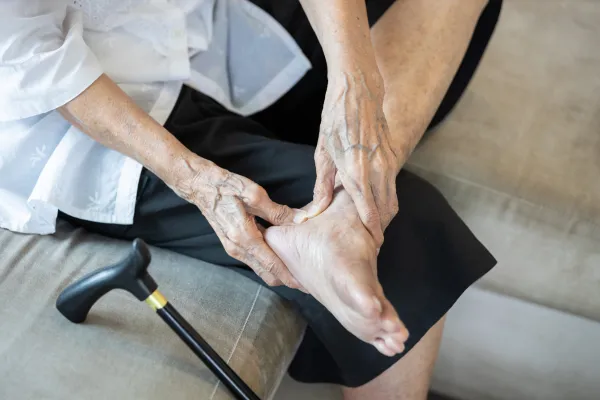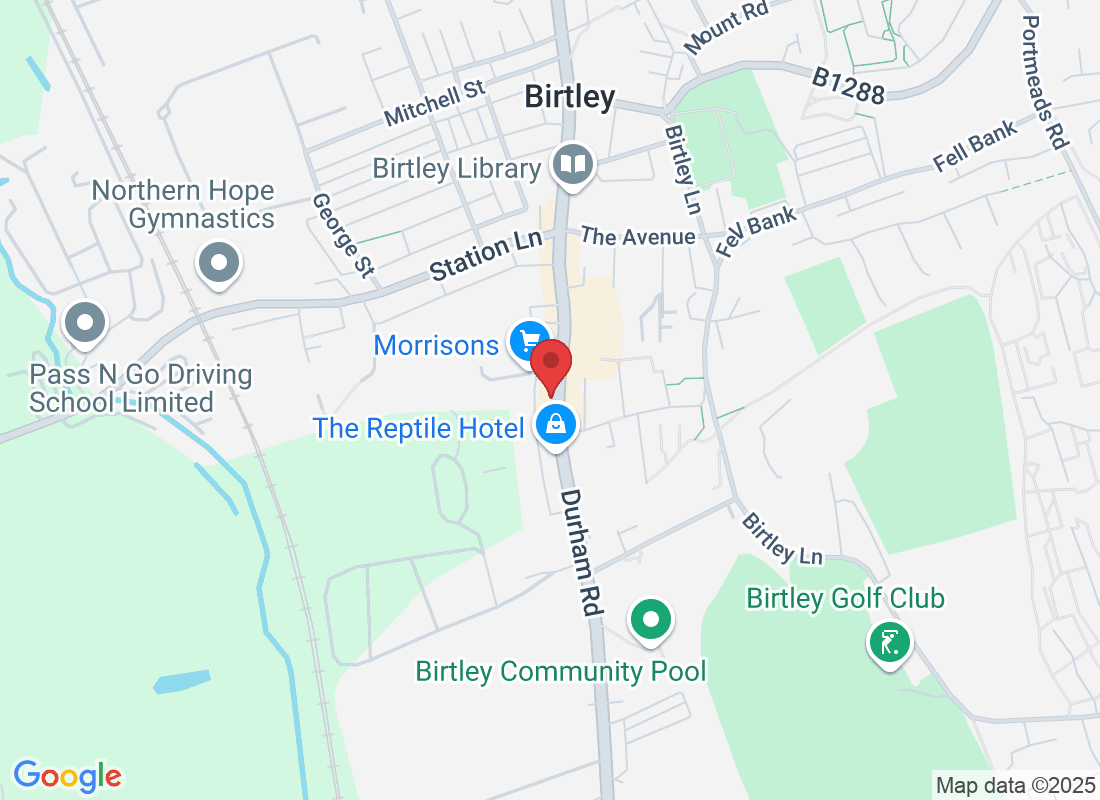Tips & Advice From Birtley Foot Clinic

Foot Pain and Ageing: What to Expect and How to Stay Comfortable on Your Feet
Getting older brings wisdom, life experience — and sometimes, aching feet.
If you’ve noticed foot pain creeping in over the years, you’re not alone. Many people find that everyday activities like walking, standing, or even getting out of bed can start to feel uncomfortable as they age.
At Birtley Foot Clinic, we regularly help patients stay mobile, independent, and pain-free through their 50s, 60s, 70s and beyond. In this blog, we’ll walk you through why foot pain happens as we age and how you can keep your feet healthy for the long run.
Why Does Ageing Affect Foot Comfort?
Our feet go through a lot over the years — decades of walking, standing, running, carrying weight, and squeezing into shoes that might not have been the best fit.
As we age, several natural changes happen:
Fat pads in the soles thin out, which reduces cushioning
Joints stiffen and cartilage wears down, making movement more difficult
Circulation slows, which can affect healing and general foot health
Skin becomes drier and less elastic, increasing the risk of cracks and discomfort
Tendons and ligaments lose strength and flexibility, affecting balance and stability
It’s no surprise that the feet might start to speak up — often loudly — about all the wear and tear they’ve experienced.
Common Causes of Foot Pain in Older Adults
Some of the most common foot problems we see in our ageing patients include:
1. Arthritis
Joint inflammation can cause stiffness, swelling, and pain — especially in the toes and midfoot.
2. Plantar Fasciitis
Yes, this affects older adults too. Heel pain from inflammation of the plantar fascia can appear or worsen with age.
3. Metatarsalgia
Pain in the ball of the foot, often linked to thinning fat pads or long-term pressure on the forefoot.
4. Bunions & Hammertoes
Changes in toe alignment can lead to pressure points, corns, and pain when walking.
5. Diabetic Foot Changes
For those managing diabetes, poor circulation and nerve damage (neuropathy) can contribute to foot pain or numbness.
6. General Overuse
Even without a specific condition, the cumulative effects of daily use can lead to aches and discomfort.
How We Help at Birtley Foot Clinic
Our team offers expert foot care and ongoing support for older adults. Here’s what we often recommend to reduce foot pain and keep you moving comfortably:
Regular Foot Health Checks
Routine check-ups help us spot early signs of common issues like corns, calluses, infections, or skin breakdown — all of which can become more serious if ignored.
Comfortable, Supportive Footwear
We provide advice on shoe fit and style, helping you choose the right pair to:
Support arches
Cushion pressure points
Improve balance and stability
Good shoes make a huge difference, especially when walking or standing for long periods.
Custom Insoles and Orthotics
Tailored insoles can relieve pressure on sore areas, improve alignment, and reduce strain on tired joints and muscles.
We often recommend custom orthotics for conditions like arthritis, bunions, or heel pain.
Gentle Nail and Skin Care
Trimming thickened nails, smoothing hard skin, and treating cracked heels all help reduce the risk of pain, infection, and discomfort — especially if mobility is limited.
Pain Relief and Therapy Options
From gentle exercises and manual therapies to advanced treatments like shockwave therapy, we offer safe, non-invasive options designed with older feet in mind.
Simple Tips to Keep Your Feet Happy as You Age
Stretch your feet and ankles daily to keep joints flexible
Soak your feet in warm water and moisturise regularly
Avoid walking barefoot on hard floors
Elevate your feet when resting to improve circulation
Check your feet for any changes — swelling, discolouration, or skin issues
And most importantly: Don’t ignore foot pain. It’s not just a “normal part of getting older” — and it can often be treated or managed effectively.
Final Thoughts from the Birtley Foot Clinic Team
Foot pain may become more common as we age, but it doesn’t have to be something you live with. With proper care, the right footwear, and expert advice, you can stay active, independent, and pain-free well into your later years.
Whether it’s heel pain, arthritis, or just tired feet, we’re here to help you stay comfortable on your feet.
Need help with foot pain or discomfort?
Book a consultation today at Birtley Foot Clinic and let our experienced podiatrists take care of your feet — so you can keep doing the things you love.
Ask Birtley Foot Clinic And Their Team
Fill in the form to request a call from our team. One of our team members will call you for FREE and answer any questions or concerns you may have about your condition
Where To Find Birtley Foot Clinic

If you have any questions before scheduling an appointment or for general inquiries, please use the contact us button below. Our team will promptly reach out to assist you.
Opening Hours
Monday: 09.00 - 17.00
Tuesday: 09.00 - 17.00
Wednesday: 09.00 - 17.00
Thursday: 09.00 - 17.00
Friday: 09.00 - 17.00
Saturday: 09.00 - 17.00
Sunday: Closed

